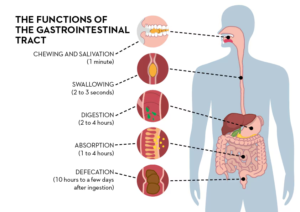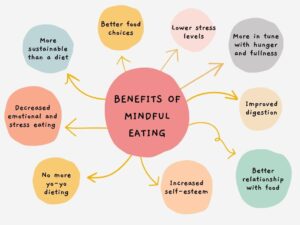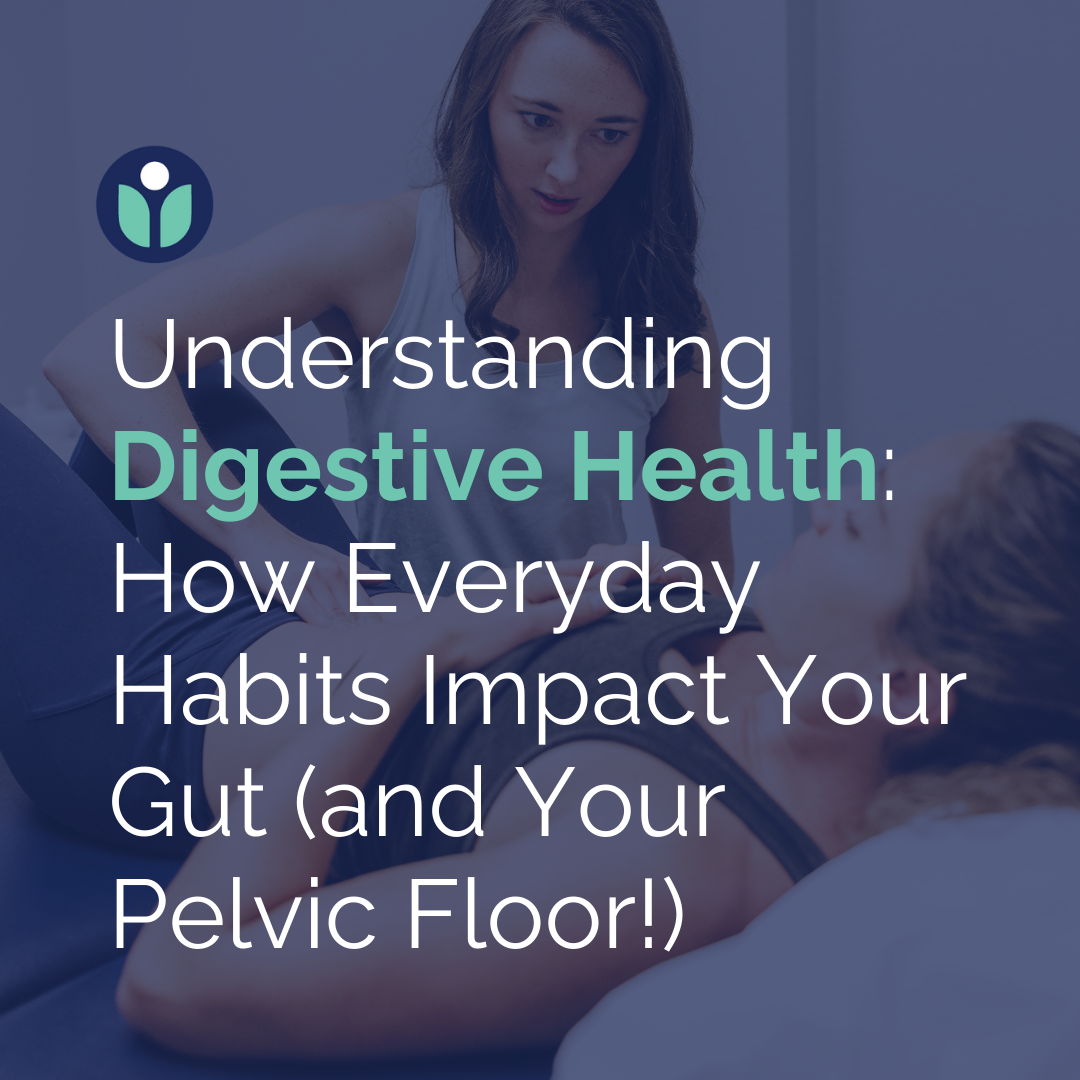Understanding Digestive Health: How Everyday Habits Impact Your Gut (and Your Pelvic Floor!)
Understanding Digestive Health: How Everyday Habits Impact Your Gut (and Your Pelvic Floor!)
Have you ever wondered how your daily habits influence your digestion?
It’s not just about what you eat but also when, where, and how you eat that can make a difference. Our digestive system is closely tied to our overall health, including pelvic health. Let’s explore how small, intentional choices can positively impact digestion and reduce issues like bloating, constipation, and pelvic floor pressure.
What Does Digestion Look Like?
Everyone’s digestive system works differently, but here are some key facts about digestion that apply to us all:
- Digestion Time: It can take 24 to 72 hours for your body to digest a meal fully.
- Bathroom Frequency: You might go to the bathroom three times a day or maybe just once every three days. (Don’t worry, both are normal! Every body has its own rhythm.)
- The Digestive Process: After you eat, the food sits in your stomach for 2 to 4 hours while it gets broken down by stomach acids and enzymes. Once it’s ready, the food moves onto the small intestine, where nutrients get absorbed.

Ever wonder how your body processes food? This diagram breaks down the journey of digestion, from the first bite to the final step, and how your GI tract works to keep things moving.
How You Eat Matters
One of the best ways to support digestion is to slow down while eating. When you take your time to chew thoroughly—about 30 times per bite–your body is better prepared to digest the food. Cutting tough foods (like meat or crunchy veggies) into smaller bites gives your stomach less work to do. Not only does this help digestion, but it allows your body time to say, “Hey, I’m full!”
Trust us; we know that an extra bite of dessert can be tempting, but eating too much too fast can overload your digestive system, slowing things down. Depending on whether it’s a small snack or a full meal with proteins, fats, and carbs, your stomach needs anywhere from 1 to 4 hours to process what you eat.
Rushing through meals or overeating can lead to digestive overload. It takes about 1 to 4 hours to process a meal fully, depending on the meal’s size and nutrient complexity. So, savor each bite—it’s a gift to your digestive system.
Timing Your Meals
When you eat is just as important as what you eat!
- Your body thrives when meals are consumed during an 8-12 hour window each day.
- For example, if you have breakfast at 7 am, aim to finish dinner no later than 7 pm. Eating late at night, especially right before bed, forces your digestive system to work overtime when your body is supposed to be resting and recovering.
- Spacing your meals about 4-5 hours apart is another great way to help your digestion. If you have breakfast at 7 am, lunch should ideally fall around 12 pm with dinner around 5 pm.
- But let’s be real, life happens, and sometimes dinner ends up being later. If hunger strikes before your next meal, having a light, easy-to-digest snack can help. This way, you’re not overly hungry by dinner time and not overwhelming your system by eating too much too late.
The Importance of a Mindful Eating Environment

Slow down, savor, and listen to your body. This chart highlights the powerful benefits of mindful eating, from better digestion to greater meal satisfaction.
It’s not just about what’s on your plate but also where you eat it. Eating on the go, in the car, or in front of the TV can make it harder to notice when you’re full. These distractions often lead to gulping down large bites and not chewing enough, which can slow digestion. Instead, try this:
- Take time to sit down at the table, away from distractions
- Your body sends more clear signals about how much food you need when you’re in a calm, seated position.
- Sit with good posture
- Shoulder over hips, sitting up tall!
- Focus on your food
- Chew fully before swallowing
- Taking time to slow down between bites, setting your fork down between bites, and chewing thoroughly before talking or taking another bite all give your body the time it needs to catch up.
Why Digestive Health Matters for Pelvic Health
Digestive health isn’t just about avoiding stomachaches. Poor digestion can lead to:
- Gas
- Bloating
- Constipation
All of these factors increase pressure on the pelvic floor. Straining during bowel movements can lead to pelvic floor dysfunction while missing the signals your body sends can contribute to a weakened pelvic floor. Paying attention to how, when, and where you eat doesn’t just help your digestion–it also helps protect your pelvic floor. By prioritizing digestion, you’re investing in your body’s overall health and ensuring that both your gut and pelvic floor get the care they deserve.
Take a deep breath, sit down for your meals, and give your digestion—and your pelvic floor—the care they deserve!
When to Seek Help
If you’re experiencing persistent digestive discomfort, constipation, or signs of pelvic floor dysfunction, it may be time to seek help. Common signs that warrant a professional evaluation include:
- Frequent bloating, gas, or discomfort after eating
- Difficulty with bowel movements, requiring regular straining
- Feelings of pressure in the pelvic area or lower abdomen
- Incontinence or difficulty with bowel or bladder control
Consulting with a healthcare provider, such as a pelvic floor therapist, gastroenterologist, or dietitian, can provide personalized guidance and support. They can help you develop strategies tailored to your needs to improve digestion and protect your pelvic floor.

Your core holds many clues! Our therapists perform thorough abdominal exams to check for diastasis recti, identify tension or hardening from constipation, and even provide gentle bowel massages when needed.
In Conclusion…
Improving your digestion doesn’t require a major lifestyle overhaul—small, consistent changes can make a big impact. Try slowing down at meals, eating during an ideal window, and creating a distraction-free environment to support both your digestion and pelvic health.
Your body deserves this care—start investing in your health today!
If you’re ready to take the next step in enhancing your health, you have questions or would like to book a FREE 15-minute phone consultation to learn more, our team is ready to help. Click the link below!

